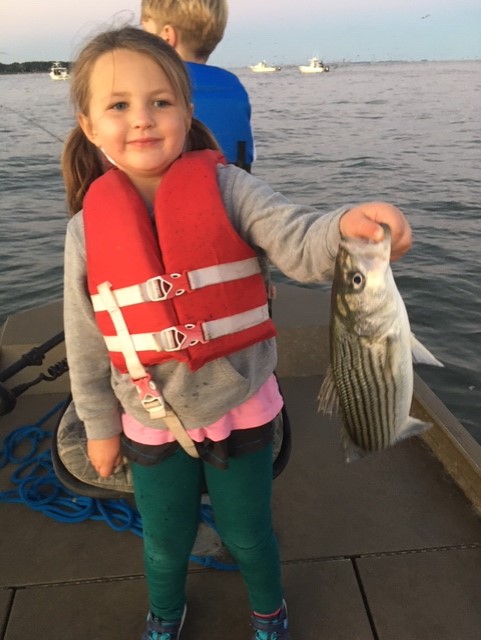The largemouth bass are biting, red drum are making their presence known at the mouth of the Chesapeake, and spring is in full force. Finally, we can pack away the winter gear, enjoy a bit of warming weather, and prepare for an entirely new fishing season. Of course, as we often point out here at FishTalk, fishing season doesn’t really ever “end” in Chesapeake country. It just goes through different phases. But there’s no doubt that the phase we’re about to enter is a whole heck of a lot more comfortable than the one we’re exiting. And when I say “we,” I’m talking about a lot more anglers than we had hitting the water a couple of years ago. Anyone who fishes, runs a tackle shop, or sells boats can tell you that despite all the angst of 2020 — or perhaps in some ways because of it — last year was an epic one for angling participation. With recreational options limited by the pandemic, those of us who are dedicated anglers put in more time on the water than ever before. And countless people who had always wanted to fish but never seemed to find the time suddenly discovered just how much fun fishing can be. Most importantly, countless young families with kids turned to the water to safely enjoy family time together.

This, anglers, is an opportunity unlike any we’ve seen before.
For decades, participation in outdoor recreation has been sliding downhill. Many people blame factors like video games and the dawn of the internet, and while they’ve certainly played a role, in today’s world there are so many different things pulling at our time availability that for most folks it takes an honest effort to go fishing. Gone are the days when kids had nothing better to do than dig worms and head for the lake. The age of schedule-free weekends is long past. Competition for time, more than anything else, has not only squelched the ability to go fishing but also the freedom to do it on a whim when there wasn’t anything else going on — because there’s always something else going on.
A few pertinent numbers illustrate the point: in 2004 the Maryland DNR sold 144,446 Resident Bay and Coastal Sport fishing licenses (according to their Recreational Fishing License Report). In 2019 that number was 101,837. And according to a study performed by the Recreational Fishing and Boating Foundation and the Outdoor Foundation, even in years when overall angler participation went up (such as from 2016 to 2017), the number of fishing trips taken overall went down. The number-one obstacle to fishing, cited by 33.3 percent of the 30,000-plus anglers queried in that study? A lack of time. Well, Covid-19 certainly changed that for a lot of folks. And in 2020, those Bay and Coastal Sport fishing licenses climbed back up over 121,000.
There’s no doubt that for the most part, the businesses that focus on serving Bay-area anglers did well in 2020 as a result. And there’s no doubt that as the ranks of anglers swell, our voice in matters regarding fisheries regulations, access issues, and the development of facilities like public boat ramps and fishing piers grows stronger. But as we put the Covid-19 nightmare behind us, we should also take care that this increased interest isn’t short-lived.
In order to play the long game rather than be satisfied with short-term gains, we need to make sure we keep these new anglers in the fold. If you know someone who jumped in and bought a boat last year but has yet to figure out how to fill the fishbox, help them make it happen. If you see someone having difficulty at the boat ramp, lend a hand. And when you meet someone new to the fishing community, welcome them with open arms.
We, as a fishing community, can’t squander this opportunity. Soon the athletics practices will start back up, school and work pressures will return to their full measure, and people will once again be wishing for just one spare moment of time. Let’s all pitch in to help make sure that these new boaters and anglers are using what free time they do have to get out on the water — we’ll all be better off for it.